A TikTok Mansion for Startup Founders. Launch House Isn’t What it Looks Like.
Francesca Billington is a freelance reporter. Prior to that, she was a general assignment reporter for dot.LA and has also reported for KCRW, the Santa Monica Daily Press and local publications in New Jersey. She graduated from Princeton in 2019 with a degree in anthropology.
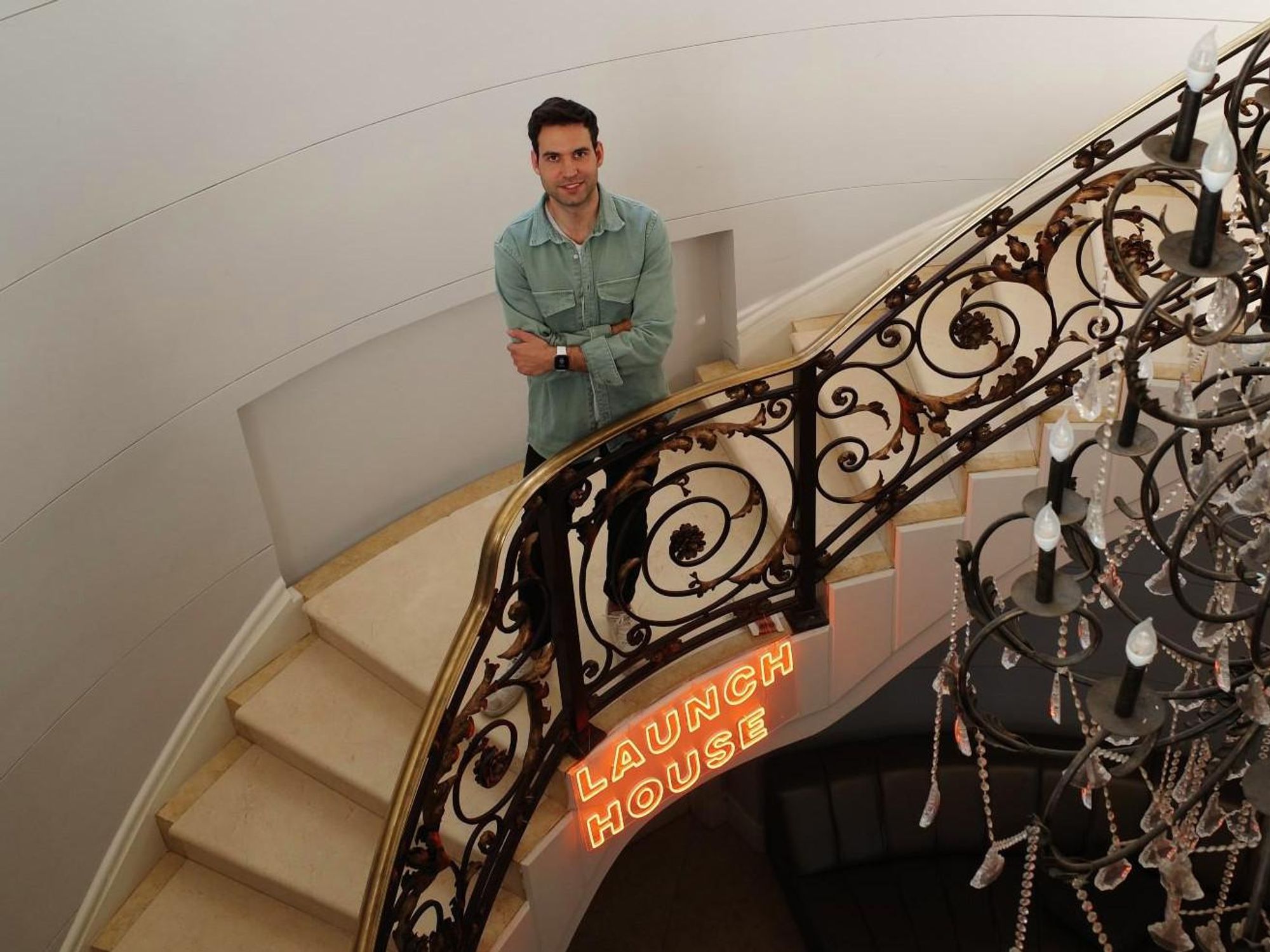
Kristen Anderson was four-and-a-half months pregnant when she got a private message on Twitter about a new self-proclaimed "creator house for entrepreneurs" in Los Angeles.
"We've rented out a $35 million mansion in Beverly Hills and have brought in some amazing founders to live together," the message read.
Anderson is no stranger to the world of venture capital and startup accelerators. She landed $8.1 million in funding for her company after finishing Y Combinator, a program that helped launch big names like Instacart and Airbnb.
But after a year of lockdown and stay-at-home orders, the job got lonely. So in February, just two weeks after learning about it, she booked a flight from Boston to Los Angeles to join Launch House, a live-in accelerator where mostly twentysomethings build their dream tech companies while chronicling it all for TikTok and Instagram.
And they're doing it from a 12,000 square-foot property they say was last rented by Paris Hilton.
In the living room, a whiteboard calendar lists upcoming events like "How to think about the future" and "hackathon presentations." One night, Anderson and her co-founder ordered pizza for the house in exchange for a brainstorm session.
"We just want to be with really smart, talented young people who are building amazing things," she said. "That helps us maintain energy."
The idea came from former Airbnb and Uber product manager Michael Houck, Google alum Brett Goldstein and Commsor co-founder Jacob Peters. The trio sees traditional startup incubators as a relic of the past.
Their goal is to recreate the basements and dorm rooms where the minds behind Google, Amazon and Apple began their empires. Only in their version, it's in a palatial setting replete with a waterfall and hot tub overlooking Los Angeles.
"Universities are no longer going to be the aggregators of great talent," said Peters, who's started to invest his own money — he won't say how much — in Launch House residents. "It's going to be small, niche communities that start in houses."
Perched on a hill in the 90210 zip code, the house reads part co-working space, part dorm-room with the pace of a reality show. Competition to get in is fierce. To secure a spot, applicants fill out an online questionnaire. For those who make the cut, an interview with the founders comes next.
Everyone pays rent, but they call it "membership."
"It's kind of syntax but it matters," Goldstein said. "This is a club and a community, and the physical living experience is just a small component."
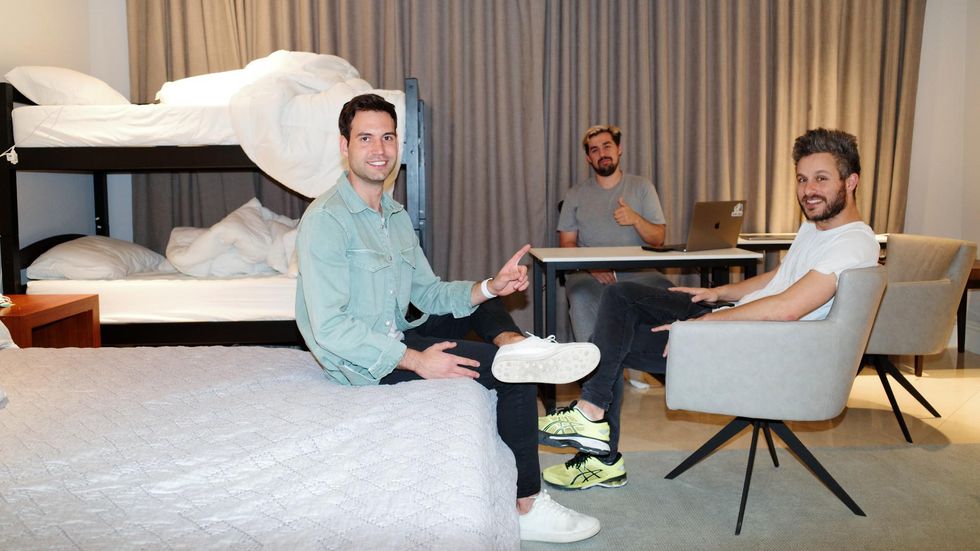
The vision captures a very specific — and opportune — moment in L.A. The sway of TikTok celebrities and influencers has crashed into VC money. It's at this meeting point where socially-native entrepreneurs hope to make a name for themselves and their nascent companies.
Just take 21-year-old Marc Baghadjian, a senior at Babson College who wakes up for 5 a.m. Zoom classes some mornings before working on his startup late into the night. Earlier this month — right before moving in — Baghadjian landed $1.1 million for his TikTok-style dating app, Lolly. Baghadjian has used the house as a networking opportunity and it helped him land more investors. Recently he secured another $2.5 million in new commitments and his company's valuation tripled.
Influencers drop by almost every other day, Baghadjian said. In February, Lolly posted an ad on TikTok featuring 19-year-old Milo Manheim, a Disney Channel actor and "Dancing with the Stars" competitor.
(Jacobs said the house maintains a "very strict policy" when it comes to visitors and socializing. Guests are required to test negative for COVID-19 at the door, using self-administered rapid tests.)
But unlike veteran accelerators like Y Combinator, Launch House doesn't promise entrepreneurs any investment. The draw is something else — schmoozing, advice and social media exposure.
As the line between advertisement and content creation blurs, it's changing the way companies find both investors and consumers.
"What on Instagram is marketing and what is entertainment?" said Olav Sorenson, a professor specializing in entrepreneurship at UCLA's business school.
"People are no longer thinking about buying ad space as the way to market a product. They're thinking about how we generate word of mouth through connecting to influencers."
L.A. is "on the forefront of this," said Sorenson. "Entertainment itself is often very entrepreneurial."
'Let's Pretend This Is a TikTok Creator House'
At almost all hours of the day, entrepreneurs at Launch House work from slender white desks and office chairs scattered across the living room, decorated with sparkly art they say Hilton left behind. Others choose to work outside, on lounge chairs lining the pool.
"I spend a lot of time in the laundry room," said Kathryn Cross, a 22-year-old from Manhattan Beach. "That's a pretty big room and you can lock the door. I'll take calls from my car or in the garage."
Cross is a model, runs a Gen Z consultancy firm called Bridge Strategy and streams herself playing chess on Twitch for extra cash. She was worried about the lack of privacy before moving in, but said space and noise aren't issues. Even weekends are work days.
"At 2 a.m. on a Saturday, there will be someone sitting in a corner coding," she said.
And Cross doesn't want to leave. While Launch House was designed to bring on a new cohort of founders every month, many stay longer.
The concept for a live-in accelerator was born last summer, when some tech companies closed their offices and even dropped pricey leases. Fashioning themselves as "digital nomads," young entrepreneurs across the country took off for remote work spots. Their offices could suddenly be anywhere.
@launch_house Reply to @alyssaasf - were a creator house for #startups #tech #fyp
Houck picked Tulum, Mexico. He already knew Goldstein and Jacobs through On Deck, a fellowship program for entrepreneurs cooking up new startup ideas, and asked them to tag along.
"On the way down, we got this cheeky idea," Goldstein said. "Let's pretend this is TikTok creator house."
The first version of Launch House was born there, in an AirBnb villa blocks from the beach, as a "co-living, co-working experiment," Peters said. It was set up like an upscale college campus for about 18 entrepreneurs to build software and apps. A big facet of that experiment was documenting it online.
"We made a website, an Instagram page and a TikTok," said Peters. "Our social accounts got immediate buzz. No one had ever really lifted that veil of mystique that often surrounds early-stage startup founders."
But, as Goldstein put it, the infrastructure in Mexico was "not there for us to give the right experience."
COVID-19 cases were still soaring last fall. There was a small outbreak at the house. Then, in October, Tulum was issued a warning when Hurricane Delta ripped through the Gulf of Mexico and into Louisiana.
"There were leaks in our place," he said. "The grocery store was closed because there was a hurricane. It was just kind of hot. We couldn't Instacart orders."
Joining LA's Influencer Buzz
The three relocated to L.A., a city clad with venture capitalists they already knew. And inside other extravagant houses across the city, young content creators were churning out TikToks and Instagram posts, signing deals with big name companies for advertisements.
"Paris Hilton moved out literally a week before we moved in," Peters said. "We turned a celebrity mansion into a hacker house," said Peters.
Hilton's PR agency did not respond to questions about whether she rented the house prior, but a few TikTok posts look to be filmed inside. Launch House has no ties to M13 Ventures, the firm founded by Hilton's fiancé, Carter Reum, according to M13 partner Christine Choi.
If the common areas resemble a glamorous WeWork, the seven bedrooms read more like dorms. Grey metal bunk beds, piles of laundry, books written by successful entrepreneurs.
Those are parts rarely seen on Launch House's social media accounts.
The goofy yet focused atmosphere inside the house — along with the success of those living there — are what the public sees.
Faraaz Nishtar, a software engineer, ended his lease in San Francisco to join Launch House. It's there he met Brendon Davis, a 23-year-old stunt YouTuber who films videos with members of Sway House, a buzzy TikTok house in Bel Air home to a group of young influencers. At least once a week, Davis drives to Launch House to brainstorm with Nishtar on pitching his app to content creators.
His startup, Alias, archives a user's digital footprint, which Nishtar hopes will become a "global directory" of online content. He scored half a million from investors like Balaji S. Srinivasan, a former general partner at Andreessen Horowitz, and later attracted a few new angel investors when he moved in. Peters included.
"Last night, we stayed up talking from midnight until 2 a.m. about the future of media," Nishtar said. "In college, people are dicking around and lounging. There's not much of that happening here."
- TikTok, Influencer Panic and the Celebrity Economy - dot.LA ›
- Launch House Accelerator Expands to New York and Beyond - dot.LA ›
- Startup Co-Living Concepts Are Booming in LA - dot.LA ›
- Launch House Is Raising a $10 Million Fund - dot.LA ›
- Launch House Raises $12 Million to Expand into the Metaverse - dot.LA ›
- Launch House Raises $12 Million to Expand into the Metaverse - dot.LA ›
- Launch House Adds 3 Digital Programs To Its Ecosystem - dot.LA ›
- Hype, Hustle and the Creator House Concept - dot.LA ›
- Positive Food Company's Alternative to Meal Delivery - dot.LA ›
- Launch House Harassment Claims Show the Need for Startup House HR - dot.LA ›
- Airbnb Expands Short-Term Rentals, But Can Hosts Profit? - dot.LA ›
- Everything To Know About TikTok's FYP Algorithm - dot.LA ›
- Meet the Visual Effects Team Behind 'House of the Dragon' - dot.LA ›
Francesca Billington is a freelance reporter. Prior to that, she was a general assignment reporter for dot.LA and has also reported for KCRW, the Santa Monica Daily Press and local publications in New Jersey. She graduated from Princeton in 2019 with a degree in anthropology.


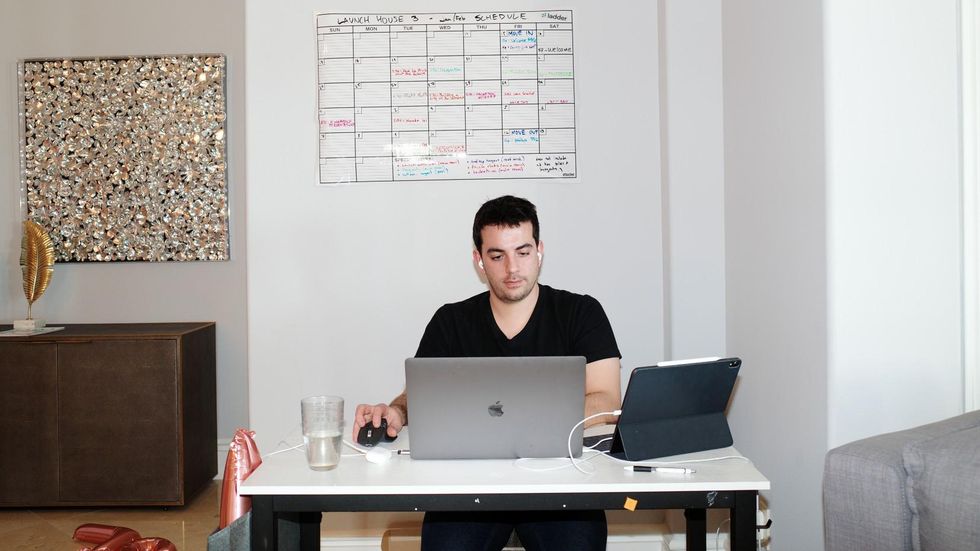
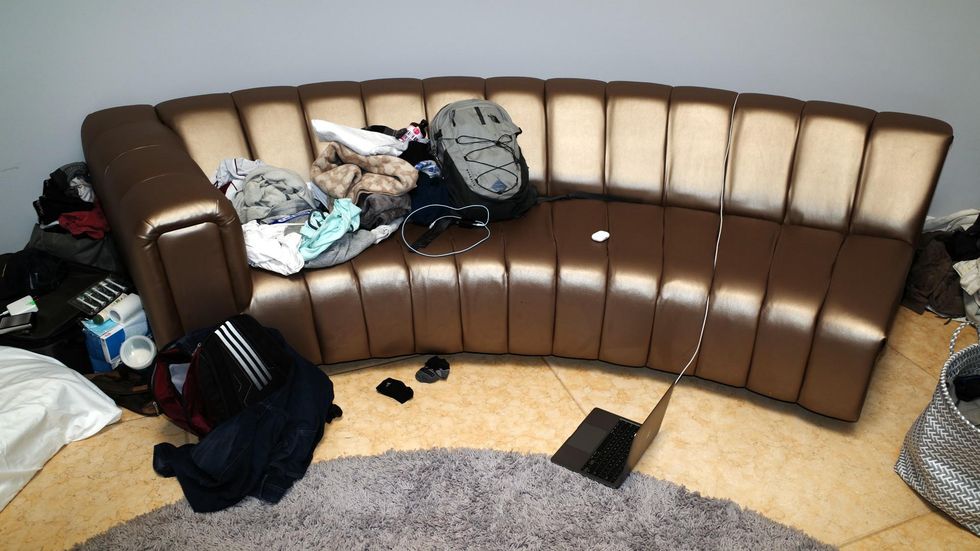
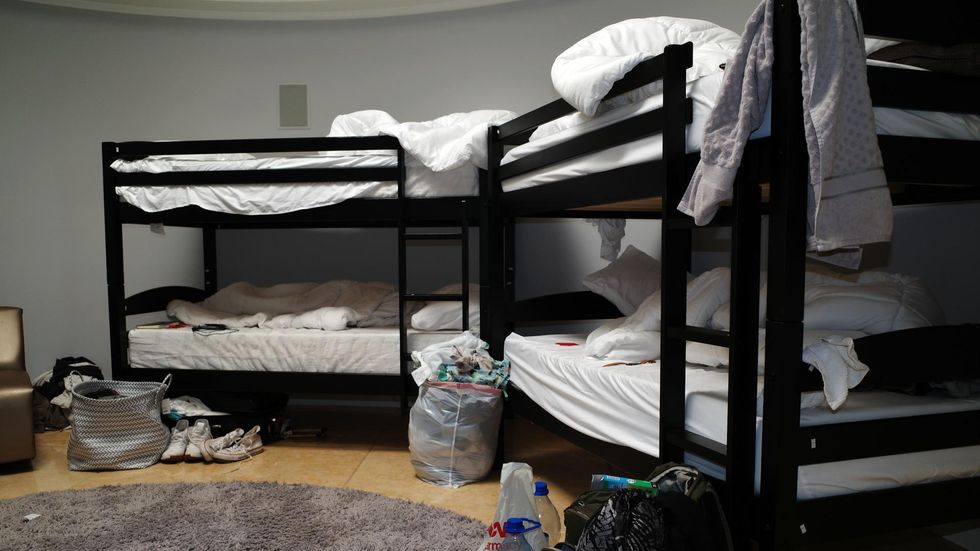
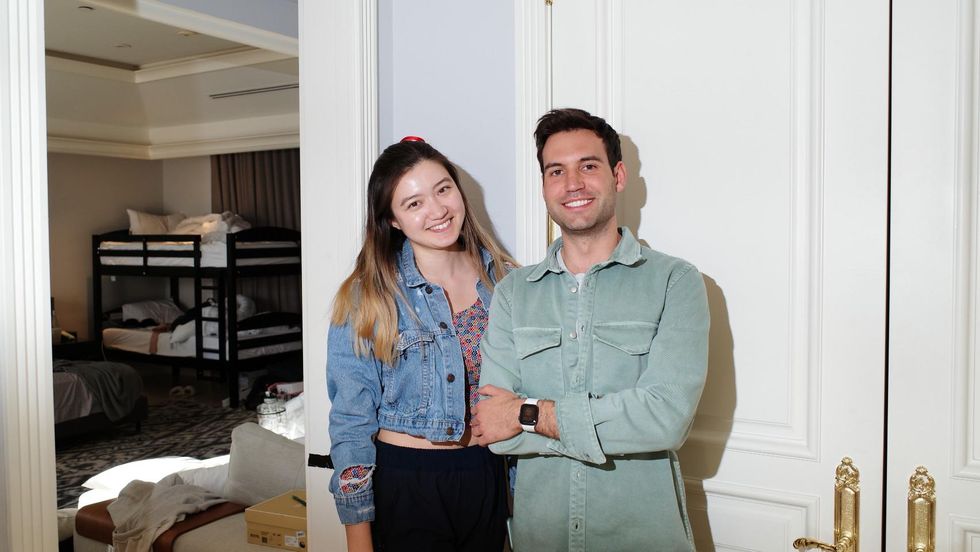

 Image Source: Valar Atomics
Image Source: Valar Atomics Image Source: Waymo
Image Source: Waymo Image Source: Apple
Image Source: Apple
